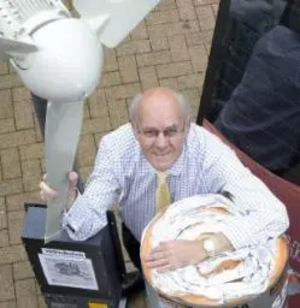Carbon Reduction Success

Local Liberal Democrats have welcomed the news that Birmingham's commitment to becoming a greener city is on track after the publication of carbon reduction figures for 2010/11.
"Our focus on improving sustainability will continue as the benefits are huge - a cleaner and greener environment along with increased opportunities for business in emerging technologies to develop here in Birmingham."
Data submitted to the Birmingham Environmental Partnership by 33 organisations from across the public, private and voluntary sectors has revealed a cut of 155,059 tonnes of CO2 - exceeding the target of 130,000 tonnes.. The figures have been verified by the Energy Savings Trust.
They represent a cut of 378,843 tonnes since 2008 against a goal of 350,000 tonnes for the same period - and mean that Birmingham is firmly on schedule to achieve a 60 per cent reduction in emissions by 2026, compared to the 1990 benchmark levels.
Examples of projects that have helped contribute to Birmingham's success include:
- Cadbury UK have implemented a number of initiatives over the 2010/11 period including installing energy efficient lighting across the Birmingham site, serviced many of their boilers and introduced additional controls to ensure these are only running as needed. The organisation has also introduced awareness raising campaigns around water and energy efficiency. Many of their processes have also been streamlined to reduced water usage and increase water recycling and their waste recycling rates have also increased.
- NEC Group have achieved electricity savings by installing energy efficient lighting in one of their convention halls which includes movement and daylight sensors. The Group have also reported a reduction in gas usage as a result of installing a new AmbiRad (radiant heating system) and Trane units (air conditioning) in one of their convention halls.
- Willmott Dixon has reported large savings made through increasing the efficiency of their fleet. Willmott Dixon has procured low carbon vehicles and carried out a "right size" exercise to ensure that they are using the appropriate vans for each job. Monitoring systems have been implemented during 2010/11 to track mileage as part of logistics and is expected to lead to further savings in the future.
- Birmingham Children's Hospital has made several improvements to their buildings during 2010/11 which have resulted in a reduction in their electricity usage. Examples include the installation of over 300 LED light fittings, installation of a CHP plant and have improved the insulation in one of its boiler houses.
- Centro have refurbished its main offices in Birmingham and are now using less floor space, they have also upgraded the lighting in their offices to make it more energy efficient. An on-going maintenance programme is also introducing energy efficient lighting at their park and ride sites. Centro are recycling a greater amount of their general waste and have increased the number of recycling collections from their sites in the city.
- Birmingham City Council's Highways Service has commenced a large Street Lighting scheme with the contracted partner Amey plc. They have devised a 25 year programme of works and prioritised the first 5 years for major re-fitting of all major street lights across the City. They are switching form sodium lamps to LED lamps. This scheme is at its early stages and the savings made during 2010/11 are relatively low compared to the estimated savings of the entire scheme.
- Bournville Village Trust has installed solar thermal panels at 167 of their properties during the summer of 2010. Solar thermal systems reduce carbon emissions by reducing the need for gas and electricity to heat water.